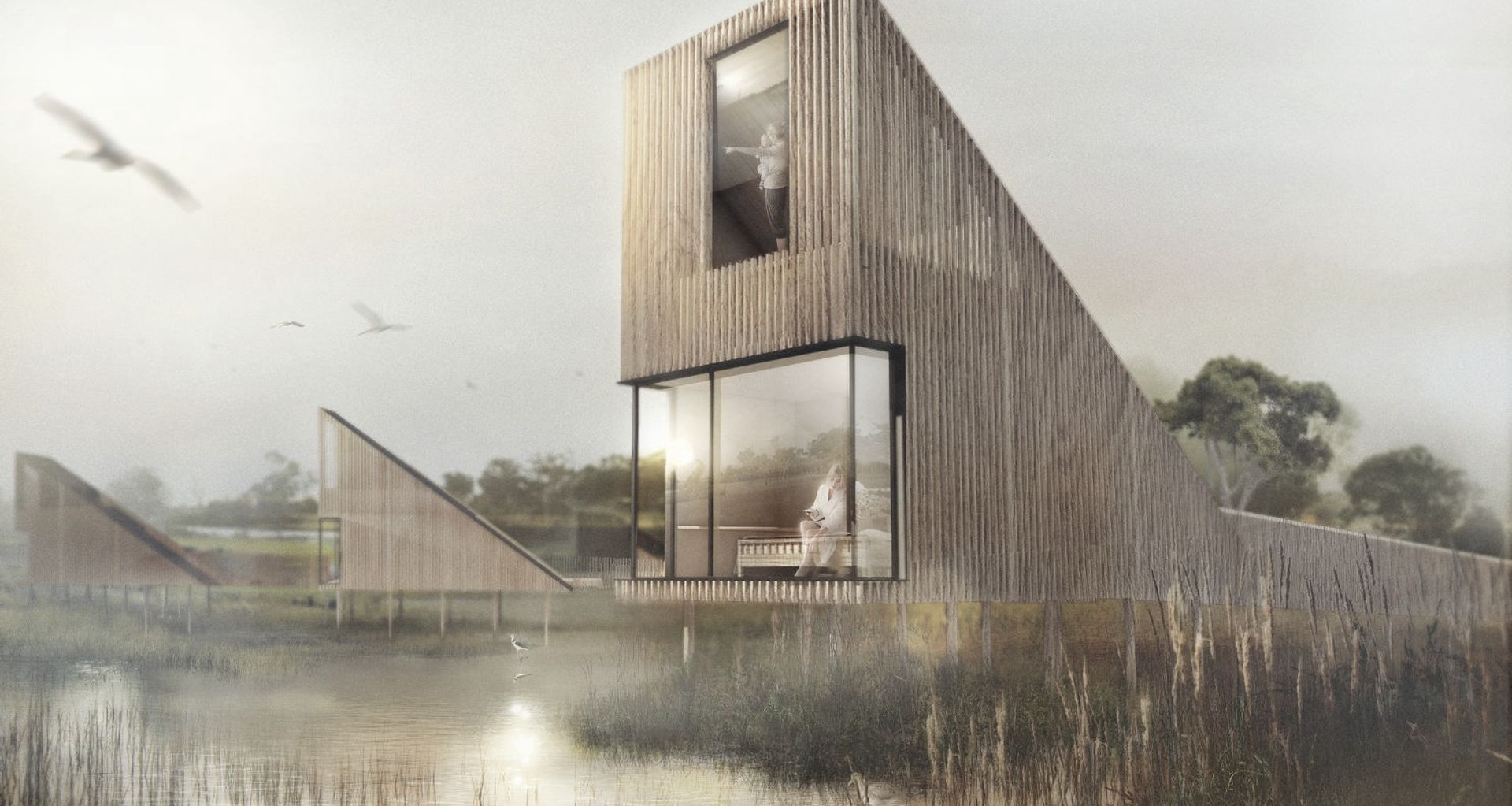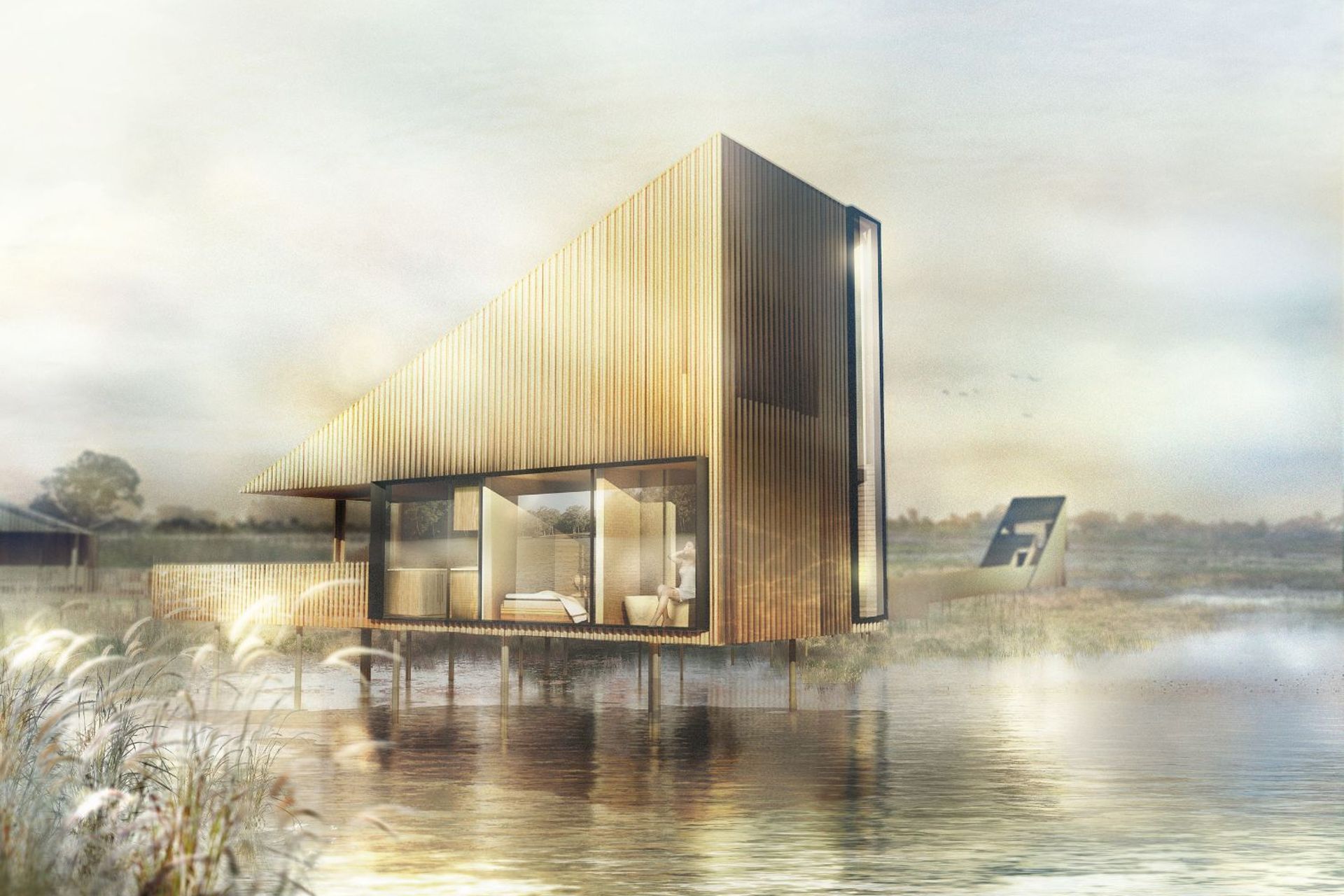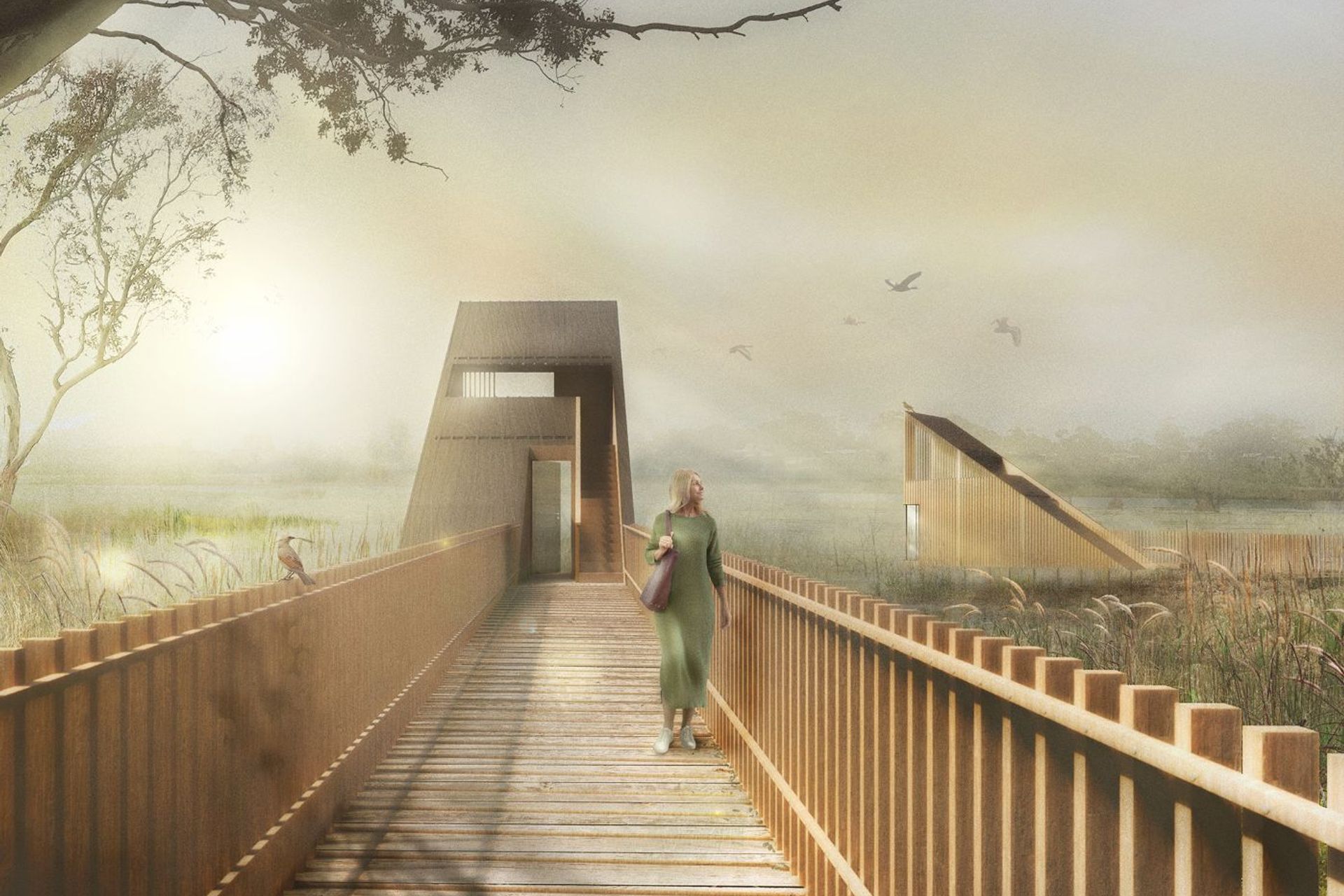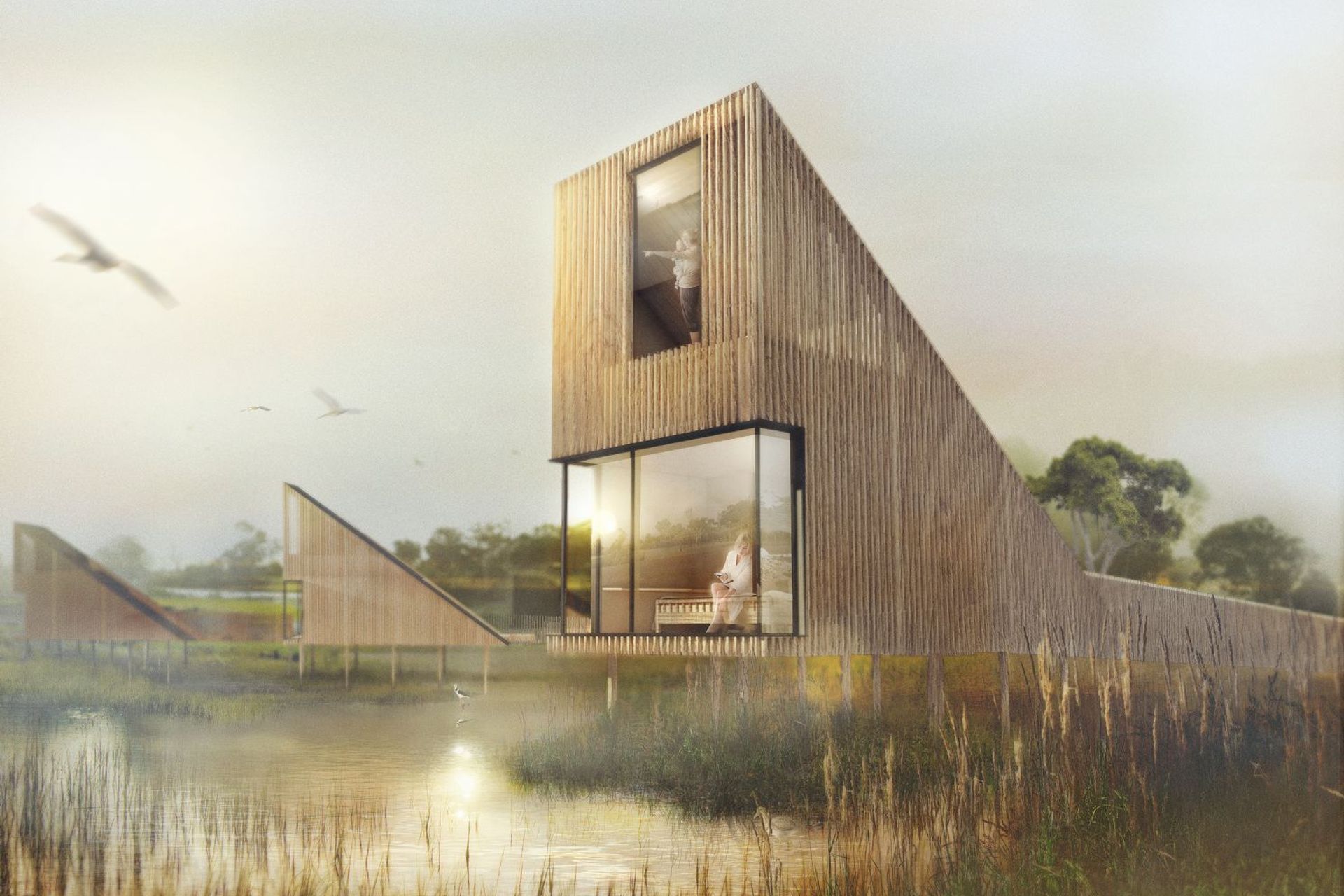Cumulus Studio creates a dialogue between geometry and nature on the Murray River
Written by
09 February 2022
•
2 min read

Along the banks of the Murray River in South Australia, sharp angularity meets the vast natural landscape. Conceived by Australian architecture and interior design studio Cumulus, the Wellington Marina comprises six timber clad retreats. Crafted from robust natural materials and utilising simple design forms alongside a muted colour palette, the group of luxury pods delicately converse with its surroundings, letting the rich landscape of the Murry River region shine through.

The design’s simple layout makes the most of a minimal footprint while the floor to ceiling windows complement the individual perspectives of each retreat over the river and nearby wetland
Maximum luxury, minimal footprint
The prefabricated structures feature pitched roofs and timber exteriors which complement the wetlands each pod looks out to. The luxury accommodation consists of three smaller ‘eco pods’ which accommodate up to two people and three ‘luxury pods’ which cater to families and larger groups. The simple design layout allows for a small environmental footprint. Coupled with the subdued colour palette and use of timber, the angular forms gradually settle into the landscape, becoming one with nature. Inside, floor-to-ceiling windows make ample use of natural light, creating intimate spaces that foster reflection and contemplation.
“The design’s simple layout makes the most of a minimal footprint while the floor to ceiling windows complement the individual perspectives of each retreat over the river and nearby wetland — filling the spaces with light but retaining a sense of privacy and quiet observation for guests,” explains Jet O’Rourke, Cumulus Associate Architect and project lead.

Environmental considerations
Each prefabricated structure is locally made in Adelaide and features integrated solar panels and rainforest harvesting facilities, working to highlight the ecological significance of the neighbouring wetland and river. Additionally, close collaboration with the Coorgong Council - Wellington Marina’s owners - and local native vegetation specialists ensured sustainable development. “We feel these designs navigate the sensitive ecology of the site and offer a new type of tourism experience to the region, one that will become an essential part of a larger connected development,” adds Jet.

The project is slated for completion in late 2022 and represents part of Wellington Marina’s overarching tourism redevelopment strategy.
Words by Tanisha Angel